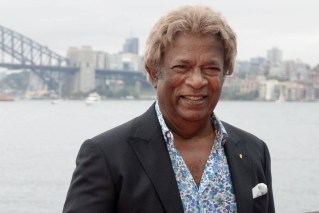When the term ‘FOMO’, the ‘fear of missing out’, went mainstream around 2010, another phrase popped up to counter it.
Although some people claimed to have FOMO about things they saw on social media, others appeared to relish ‘JOMO’, the ‘joy of missing out’.
They would insist they enjoyed, and even preferred, their own company, and could use the solitude as an opportunity for mindfulness, self-reflection and self-improvement.
But a new study by Washington State University has found that JOMO may not be quite as joy-filled as people claim.
In fact, the study found that many people who experience JOMO also suffer from social anxiety.
Avoiding social interaction
Lead author and psychology professor Chris Barry said some respondents enjoyed missing out on things, not because it offered opportunities for introspection and self-improvement, but because it meant they didn’t have to interact with others.
“In general, a lot of people like being connected,” he told WSU Insider.
“When trying to assess JOMO, we found that some people were enjoying missing out, not for the solitude or a Zen-like calming experience of being able to regroup, but more to avoid social interaction.”
Researchers surveyed two groups of adults, each containing 500 people, recruited through Amazon’s crowd-sourcing platform MTurk.
Respondents were asked a range of questions to measure their JOMO, including prompts about spending time alone, self-reflection and social disconnection.
In researchers’ analysis of the first group, they found that respondents who experienced a high level of JOMO also experienced high levels of social anxiety.
Researchers also found a connection between heightened JOMO and introversion, social media use and life satisfaction.
To further investigate, the researchers decided to analyse a second group to find respondents who experienced JOMO in the absence of social anxiety.
To their surprise, they found that only 10 per cent of participants who experienced JOMO did not have high levels of anxiety.
That same 10 per cent, while not socially anxious, still reported moderate feelings of loneliness and social isolation.
‘Motives matter’
Professor Barry said JOMO could be either positive or negative – depending on a person’s reasons for self-isolation.
“The motives matter,” he said.
“Why are people missing out? If it’s because they need to recharge, that’s maybe a good thing. If they’re trying to avoid something, that is probably not healthy in the long run.”
If you’d still like to take comfort in the feeling of JOMO, then read about the best ways to do so, according to a professor in social and health psychology from the University of Durham, Fuschia Sirois.
“When we accept and are satisfied with what we have and who we are,” she wrote, “we will be less likely to make unhealthy social comparisons and more likely to experience JOMO.”









